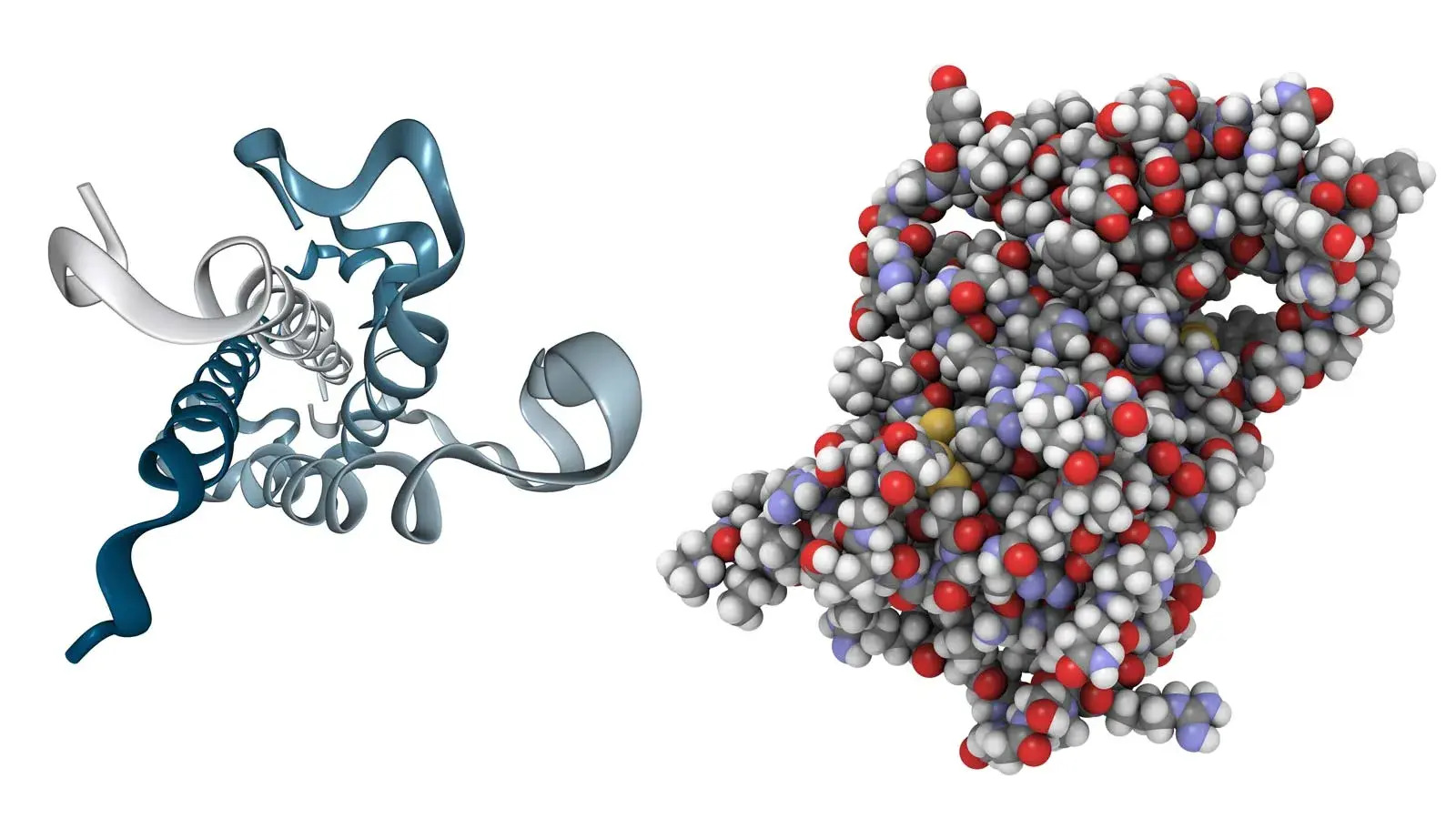
Growth Hormone-Releasing Hormone (GHRH) plays a crucial role in regulating growth and development. This hormone, produced in the hypothalamus, stimulates the pituitary gland to release growth hormone (GH), which is essential for growth, metabolism, and overall health. GHRH impacts everything from muscle growth to bone density, making it a key player in human physiology. Understanding GHRH can help in managing conditions like growth hormone deficiency and even aging. This article will delve into 30 fascinating facts about GHRH, shedding light on its functions, benefits, and potential therapeutic uses. Get ready to uncover the secrets behind this powerful hormone!
Key Takeaways:
- Growth Hormone-Releasing Hormone (GHRH) is a vital hormone that stimulates growth and development in our bodies, playing a key role in regulating metabolism and body composition.
- GHRH is crucial for normal growth, and its levels are influenced by factors such as sleep, stress, and exercise. Understanding GHRH can help diagnose and treat growth-related disorders.
What is Growth Hormone-Releasing Hormone (GHRH)?
Growth Hormone-Releasing Hormone (GHRH) is a crucial peptide hormone that stimulates the release of growth hormone (GH) from the pituitary gland. Understanding GHRH can shed light on how our bodies grow and develop.
-
GHRH is produced in the hypothalamus, a small region of the brain that links the nervous system to the endocrine system.
-
It plays a vital role in regulating growth, metabolism, and body composition.
-
GHRH is also known as somatocrinin or somatoliberin.
-
The hormone consists of 44 amino acids in its active form.
-
GHRH was first discovered in the 1980s by Dr. Roger Guillemin and his team.
How Does GHRH Work?
GHRH functions by binding to specific receptors on the pituitary gland, prompting the release of growth hormone. This process is essential for various bodily functions.
-
GHRH receptors are known as GHRH-R and are located on the surface of pituitary cells.
-
When GHRH binds to its receptor, it activates a signaling pathway involving cyclic AMP (cAMP).
-
This signaling pathway leads to the secretion of growth hormone into the bloodstream.
-
Growth hormone then stimulates growth and cell reproduction in various tissues.
-
GHRH release is regulated by factors such as sleep, stress, and exercise.
The Role of GHRH in Growth and Development
GHRH is essential for normal growth and development, especially during childhood and adolescence. It influences various physiological processes.
-
Growth hormone, stimulated by GHRH, promotes the growth of bones and muscles.
-
It also helps in the metabolism of fats, proteins, and carbohydrates.
-
GHRH levels are highest during puberty, a period of rapid growth.
-
Deficiency in GHRH can lead to growth hormone deficiency, resulting in stunted growth.
-
Excessive GHRH can cause gigantism in children and acromegaly in adults.
Medical Applications of GHRH
GHRH has several medical applications, particularly in diagnosing and treating growth-related disorders.
-
Synthetic GHRH analogs are used to diagnose growth hormone deficiency.
-
These analogs can also treat children with growth hormone deficiency.
-
GHRH therapy can help improve body composition in adults with growth hormone deficiency.
-
It is sometimes used in anti-aging treatments to boost growth hormone levels.
-
Researchers are exploring GHRH's potential in treating neurodegenerative diseases.
GHRH and Sleep
Sleep has a significant impact on GHRH secretion. Understanding this relationship can help optimize growth hormone levels.
-
GHRH secretion peaks during deep sleep, particularly in the early part of the night.
-
Sleep deprivation can reduce GHRH levels, affecting growth hormone release.
-
Improving sleep quality can enhance GHRH secretion and overall growth hormone levels.
-
GHRH may play a role in regulating sleep patterns and quality.
-
Studies suggest that GHRH could be used to treat sleep disorders.
Interesting Facts About GHRH
Here are some intriguing facts about GHRH that highlight its importance and complexity.
-
GHRH is part of a feedback loop involving growth hormone and somatostatin, another hormone that inhibits growth hormone release.
-
The gene encoding GHRH is located on chromosome 20 in humans.
-
GHRH has a short half-life, meaning it is quickly broken down in the body.
-
Some animals, like certain fish, have different forms of GHRH compared to humans.
-
Researchers continue to study GHRH to uncover new therapeutic applications and understand its role in health and disease.
Final Thoughts on GHRH
Growth Hormone-Releasing Hormone (GHRH) plays a crucial role in regulating growth and metabolism. This hormone, produced in the hypothalamus, stimulates the pituitary gland to release growth hormone (GH), which is essential for growth, cell repair, and metabolism. Without GHRH, the body wouldn't produce enough GH, leading to growth deficiencies and metabolic issues.
Understanding GHRH's function helps in diagnosing and treating growth disorders. For instance, synthetic GHRH can be used to treat children with growth hormone deficiencies. Moreover, GHRH research continues to offer insights into aging, muscle mass maintenance, and overall health.
In short, GHRH is vital for growth and metabolic health. Its study not only aids in treating deficiencies but also enhances our understanding of human biology. Keep these facts in mind, and you'll appreciate the importance of this hormone in maintaining a healthy body.
Frequently Asked Questions
Was this page helpful?
Our commitment to delivering trustworthy and engaging content is at the heart of what we do. Each fact on our site is contributed by real users like you, bringing a wealth of diverse insights and information. To ensure the highest standards of accuracy and reliability, our dedicated editors meticulously review each submission. This process guarantees that the facts we share are not only fascinating but also credible. Trust in our commitment to quality and authenticity as you explore and learn with us.
